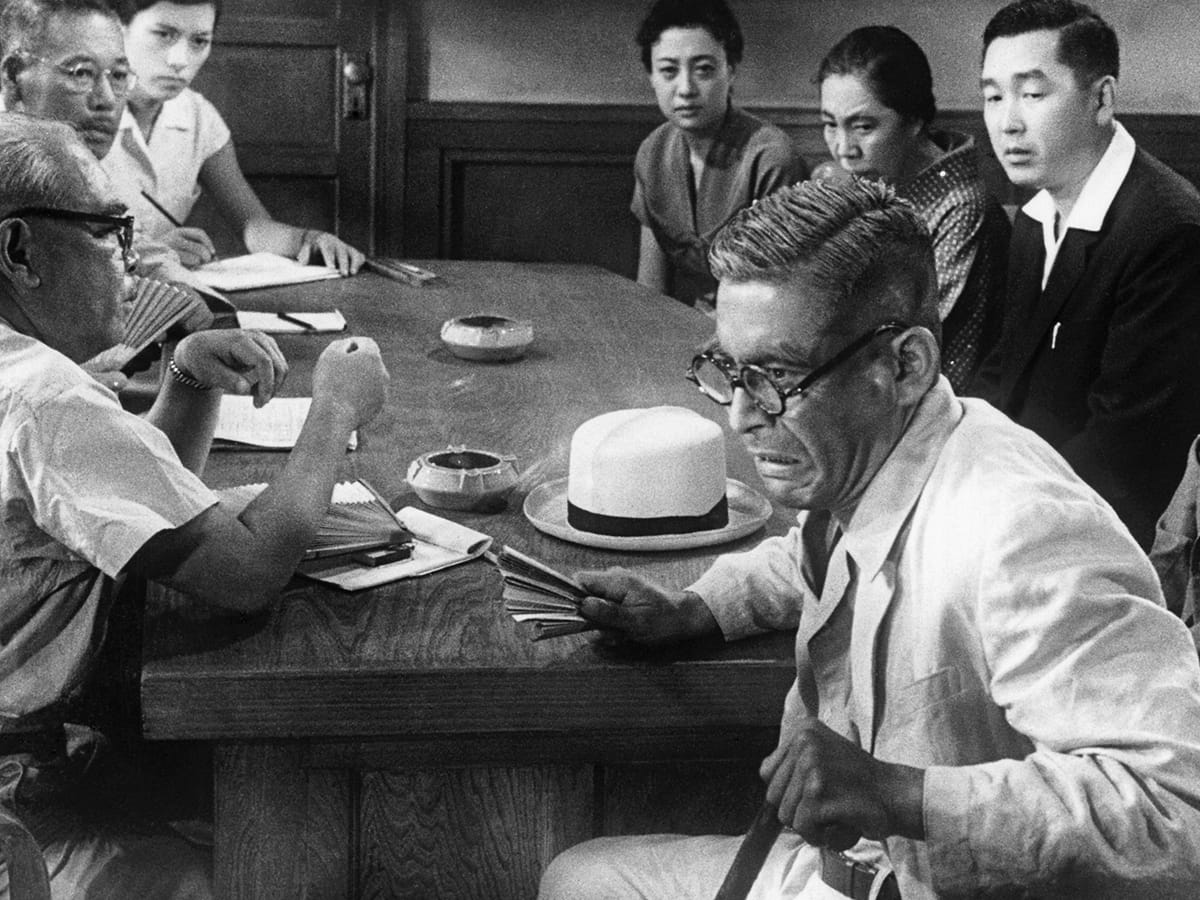




Dir: Akira Kurosawa | Wri: Shinobu Hashimoto, Akira Kurosawa | Cast: Toshiro Mifune, Takashi Shimura, Minoru Chiaki, Eiko Miyoshi | Japan, Drama, 103′
Akira Kurosawa’s reputation both at home and abroad continues to rest mainly upon his samurai films rather than his modern dramas; and this very contemporary family saga addressing the traumas of Hiroshima and Nagasaki ten years earlier – and a critical success – was one of the biggest financial flops he ever made and remains one of his least known films. (It didn’t open in America until 1967.)
although one of his films in which Kurosawa personally took most pride
For me, its timely message acquired additional resonance years later when George W. Bush became president of the United States, and continued to reverberate with the publication of the Chilcot Report into the conduct of the invasion of Iraq. Originally proposed to Kurosawa by his distinguished collaborator, the composer Fumio Hayasaka (who died during production), as a satire akin to Dr Strangelove; the film retains a grimly comic quality that was ahead of its time and anticipates much that has followed since – including Losey’s The Damned, Peter Weir’s The Mosquito Coast and even the seventies sit-com The Good Life – and still has much to say to us today.
Appropriately shot while Tokyo was experiencing a heatwave, 35 year-old Toshiro Mifune gives a towering performance as usual (unusually cast even for him in heavy makeup, greyed hair and spectacles) as Kiichi Nakajima, a 75 year-old iron foundry owner who stuns his entire family by announcing that he is going to sell his business and relocate to Brazil taking them all with him in order to be safe from nuclear war. Their dilemma in many ways resembles the quandary in which Tony Blair fairly rapidly found himself when Bush Jr. became president.
Jean Renoir famously declared that “Everyone has their reasons”; and one can empathise with both sides of these two dilemmas. Nakajima’s family understandably don’t want to give up the comforts of life in modern Japan for an uncertain future in Brazil. But is Nakajima’s obsessive fear of nuclear weapons (or that of nuclear terrorist Professor Willingdon in Seven Days to Noon) really any crazier than the suppression of that fear by ‘normal’ people, one that enables them daily just to get on with their lives? (The central paradox of the Atomic Age is that people today enjoy the highest standard of living that homo sapiens has ever known; while being saddled with the constant anxiety that it could all evaporate in an instant at the push of a button.)
Just as Nakajima’s family desperately want to keep the old man happy for the sake of a quiet life – but the only thing that will shut him up is the one thing that they have absolutely no intention of doing – so when George W. emerged triumphant from the shambles of the 2000 presidential election, it was Tony Blair’s ardent wish to be the new president’s new best friend. (If a freak result had somehow put Charles Manson in the White House, Blair would doubtless have been just as eager to extend HIM the hand of friendship.)
But when Boy George swaggered on to the White House lawn the whole world knew he had unfinished business with pappy’s old nemesis Saddam Hussein to attend to; and that any attempt to remain friends with him would sooner or later mean receiving extremely awkward requests concerning Iraq.
As in many awkward situations the short-term desire to avoid unpleasantness simply by saying ‘Yes’ can have very unpleasant long-term consequences. I saw this film over thirty years ago but remember it as if it were yesterday. Richard Chatten